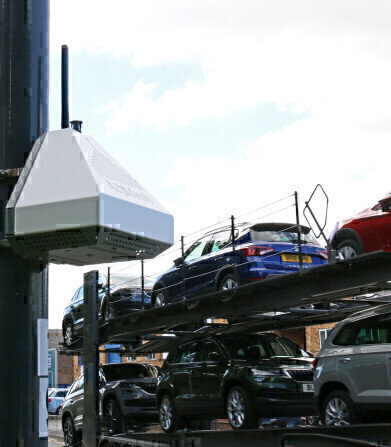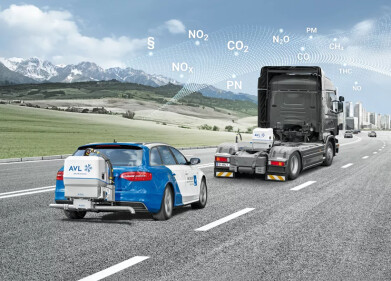Air Monitoring
Car-free Cardiff achieves 69% air quality improvement
Jul 19 2018
On Sunday 13thMay 2018, Cardiff Council organised a car-free day in the city’s central area. As a result of this event air quality monitoring data showed an average 69% drop in nitrogen dioxide (NO2) – one of the pollutants of greatest public health concern. Seeking a better understanding of the relationship between air quality and traffic, Cardiff Council hired three AQMesh air quality monitoring pods from Air Monitors Ltd. The instruments were located on streets impacted by the day’s event, and within two of the Councils Air Quality Management Areas (AQMAs); City Centre & Stephenson Court, Newport Road. The instruments continuously recorded air quality at these locations for 20 days before, during and after the event.
“In comparing the results obtained during the Car Free Day Event with results from the following Sunday (20thMay), the monitor on Duke Street showed an 87% reduction in nitrogen dioxide, the monitor in Westgate Street showed an 84% reduction and the third monitor, which was located less centrally from the main road closures, in Stephenson Court, showed a 36% reduction,” commented a Specialist Services Officer, working for Shared Regulatory Services (SRS) on behalf of Cardiff Council. “Comparing the car-free datasets with those of the following Sunday (20thMay); the daily average nitrogen dioxide levels recorded by two of the monitors situated within the City Centre AQMA exceeded the EU yearly average limit (40 µg/m3), but on the car-free day, these two monitors measured daily average figures of just 5 and 8µg/m3of nitrogen dioxide, providing clear evidence that air pollution in Cardiff city centre is generated by traffic.”
Under the European Ambient Air Quality Directive, Welsh Ministers have a duty to ensure that compliance with air quality objectives defined within the directive is achieved. As outlined in Defra’s UK Action Plan for tackling roadside nitrogen dioxide concentrations, July 2017, modelling has indicated that certain road networks in Cardiff fail to meet EU air quality requirements. Cardiff Council has been directed by Welsh Government to undertake a feasibility study, in order to demonstrate how compliance with the directive and its specified limits will be achieved in the shortest time possible. In order to implement air quality interventions, the Council therefore needs to evaluate the sources of pollution so that appropriate interventions can be assessed to ensure that effective mitigation measures can be implemented. At the same time, it will be necessary to engage with citizens to ensure that they appreciate the importance of tackling air pollution.
Nitrogen dioxide and particulates are the main cause of failures to meet EU air quality limits in cities around the world, and it is well known that traffic, and diesel vehicles in particular, are a major source of these pollutants. The AQMesh pods measure a range of gases including nitrogen dioxide, so by monitoring the effect of removing traffic, the Council will be in a better position to implement improvement measures.
Two automatic air quality monitoring stations are located in Cardiff, and the Council supplements the data from these monitors with a network of non-automatic passive diffusion tubes. However, the Specialist Services Officer from SRS says: “The fixed stations can’t provide street-level monitoring at the most sensitive locations, and the use of diffusion tubes does not provide a detailed understanding of daily trends as they only provide a monthly average figure. However, SRS are aware of the capabilities of the AQMesh pods and are familiar with the accuracy and flexibility that they are able to deliver, which is why they were chosen for the car-free day project.”
In order to assure the quality of the monitoring data, the AQMesh pods that were employed during the project were checked against a reference station and were found to have performed very well. “The pods are small, lightweight and battery-powered which makes them quick and easy to deploy,” the Specialist Services Officer adds. “This is crucial to our work because it gives us the ability to site them on lamp posts so that they measure the air that people are breathing. In addition, they are web-enabled which means that we can monitor air quality in almost real-time; providing a unique insight into the specific events that impact air quality.”
It has been estimated that around 40,000 people in the UK die prematurely as a result of air pollution, mainly in the larger towns and cities. In Wales, the urban areas exceeding EU limits include Cardiff, Swansea, Port Talbot, Newport, Chepstow and Wrexham.
Following completion of the monitoring work in Cardiff, SRS has had requests for the data from a number of organisations, and are keen for the work to be publicised as widely as possible. Highlighting the importance of citizen engagement, the SRS Specialist Services Officer says: “A wide variety of potential measures are available to combat air pollution in Cardiff, but many involve inconvenience for members of the public and cost to the public purse, so we need those affected to be on-board with the measures being taken. We are also hoping that the public will be keen to help, by participating in car-share schemes for example.”
Digital Edition
IET 34.2 March 2024
April 2024
Gas Detection - Biogas batch fermentation system for laboratory use with automatic gas analysis in real time Water/Wastewater - Upcycling sensors for sustainable nature management - Prist...
View all digital editions
Events
Apr 22 2024 Hannover, Germany
Apr 22 2024 Marrakech, Morroco
Apr 23 2024 Kuala Lumpur, Malaysia
Apr 23 2024 Kintex, South Korea
Apr 23 2024 Edmonton, AB, Canada



















